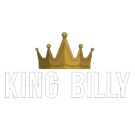
“Risk comes from not knowing what you’re doing.” — Warren Buffett
Author’s note: If I can’t verify a casino licence on the regulator’s public register and reconcile it with the domain in the footer, I do not recommend the site. Full stop.
Introduction
My journey through the world of online casinos has taught me two simple truths: most people search with good intentions, and most sites still don’t explain the basics. That’s why this Casino Review page exists. I approach every review like a forensic audit, balancing SEO strategy with an editor’s scepticism and a player’s curiosity. You’ll see transparent licence verification steps, worked examples that demystify bonus maths, real regional legality (including why online casinos remain illegal in Australia), and a clear path to responsible gambling support. I write in British English, but the guidance covers Europe, Canada and Australia. When you see JuneNCo throughout this page, know it stands for an independent project committed to E‑E‑A‑T principles: Expertise, Experience, Authoritativeness and Trustworthiness.
Understanding the online casino landscape: what people search for and why
The phrase online casino hides dozens of intents. My analysis of first‑page search results across English‑language markets shows that people usually fit into one of four categories:
- Casual discoverers looking for “best online casino” lists. They want curated recommendations, comparisons of bonuses and game libraries, and reassurance that the sites are safe.
- Researchers searching terms like “casino review” or “casino rating”. They need methodology and fairness details: licensing, test reports, responsible‑gambling tools and any regulatory infractions. They also want to know how I calculate scores.
- Regional players typing “online casino Europe”, “online casino Canada” or “online casino Australia”. They’re hunting for legal guidance in their jurisdiction, plus lists of sites serving their country or province.
- Bonus hunters scanning for “casino bonuses”, “no deposit bonus” or “free spins” along with conditions like wagering requirements and withdrawal caps.
People rarely type long sentences; they expect direct answers. That’s why this page uses natural phrases for voice search and features a carefully chosen semantic core (see the table near the end) that captures high‑frequency and long‑tail keywords without stuffing them.
How I review casinos: my 10‑signal rating framework
Review sites often hide their methodologies, leaving you to trust their “top picks” without context. In contrast, JuneNCo publishes its rubric so you can see how every rating is earned. Think of it as a mini‑audit:
- Licence & oversight: I confirm the licence number and legal entity in the footer, then check it on the UK Gambling Commission (UKGC), Malta Gaming Authority (MGA), Spelinspektionen (Sweden) or provincial regulators in Canada. Online gambling businesses serving Great Britain must have their software and gameplay tested by approved labs before releasing games; they can’t offer games to British players without sufficient testing. In Ontario, operators must be 19+ and physically located in the province.
- Safety & fairness: I verify that all games are tested by independent labs and that the operator provides tools like self‑exclusion, deposit limits and reality checks. Under UKGC rules, gambling businesses must monitor game performance to ensure returns to player (RTP) match the design.
- Banking & withdrawals: I examine how quickly you can deposit and cash out, whether e‑wallet withdrawals happen within 24 hours, and if there are fees or pending periods hidden in the T&Cs.
- Bonus value: I decode the wagering model (bonus‑only vs deposit+bonus), calculate effective wagering and highlight contributions, caps and time limits. There’s a worked example later.
- Game catalogue & providers: I check for high‑RTP slots, live dealers, fair table games and reputed software providers.
- Mobile & app experience: I test the mobile site and any native apps, checking for speed, biometric log‑in and how the cashier functions on a small screen.
- Customer care: I look for 24/7 live chat, email support and robust complaint handling.
- Compliance UX: I note age gates, location checks, opt‑in marketing options and any frictionless financial risk assessments. The UKGC introduced new rules in 2024 and 2025 requiring light‑touch financial vulnerability checks and real‑time spending displays.
- Reputation signals: I review publicly available complaints, regulator sanctions and player reports.
- Editorial integrity: I separate ad content from reviews and disclose any affiliate relationships. That transparency is part of JuneNCo’s brand.
I summarise these signals in every single review, giving you a clear view of why a casino is ranked where it is.
Licence verification: how to do it yourself
Licensing is the foundation of safe play. Here’s how to verify a licence in under a minute:
- Scroll to the casino’s footer and copy the licence number(s) and company name. You’ll often see references such as UKGC No. 12345 or MGA/B2C/123/2019.
- Paste the details into the relevant regulator’s public register:
- UKGC Public Register for Great Britain (you can search by company, domain or account number). The UKGC requires all online gambling games to be tested by approved labs before going live and regularly audits game performance.
- MGA Licensee Register for Malta.
- Spelinspektionen Register for Sweden, which issues permits and monitors licences. Sweden’s government is tightening responsible‑gambling plans; from 1 October 2024 the regulator will define the content of licence holders’ action plans and can ban credit‑type transactions.
- iGaming Ontario Directory for Ontario, Canada, which lists regulated operators. Only players aged 19 or older who are physically in Ontario can play.
- Confirm that the domain and legal entity match the register entry and that the licence status is active. If the site fails any of these checks, walk away.
In Australia, there is no such verification step because providers are not allowed to offer online casinos at all. Any site claiming to be “Australian‑licensed” for casino games is misleading you.
Region‑specific legalities: Europe, Canada and Australia
Great Britain and Europe
The UK has some of the strictest online gambling regulations in the world. Beyond mandatory game testing, new rules introduced in 2024 and 2025 reduce game intensity, improve marketing opt‑ins and bring in light‑touch financial vulnerability checks. Features like turbo or autoplay will be banned across all online casino products from 17 January 2025. Operators must display your net spend and time spent gambling in real time and ensure you can opt out of certain marketing channels. Age‑verification tests for land‑based premises have also tightened to include any customer who appears under 25.
On the continent, Malta’s MGA and Sweden’s Spelinspektionen dominate licensing for cross‑border operators. Malta’s register is straightforward, but you still need to confirm that the domain is listed. Sweden’s regulator emphasises responsible gambling; operators must discourage excessive play and will soon need detailed action plans to show how they prevent harm. Sweden’s national self‑exclusion tool Spelpaus lets any resident exclude themselves from all registered gambling for one, three or six months, or until further notice. Once you choose a self‑exclusion period, you cannot cancel it.
Canada
Canada’s federal Criminal Code sets a default ban on gambling, but Section 207 gives provinces the authority to conduct and manage gambling. Ontario opened its market to private operators in April 2022 and now licenses dozens of iGaming sites under the iGaming Ontario (iGO) model. Operators must follow strict AML and KYC requirements and can operate only in the province. They must verify that players are 19+ and physically in Ontario. Other provinces still run gambling through government‑owned platforms; there is no private licensing for casinos. If you’re outside Ontario, you’ll either be limited to provincial lottery‑style casinos or the so‑called “grey market”. Always confirm that any site you use is legally authorised by your province.
Australia
Australia’s Interactive Gambling Act 2001 makes it illegal for gambling providers to offer online casinos, in‑play sports betting or unlicensed sports betting to people in Australia. These services cannot even be advertised in Australia. The Australian Communications and Media Authority (ACMA) can request ISPs to block websites and can refer offending company directors to the Border Force. Since reforms in 2017, more than 220 online gambling services have withdrawn from the Australian market. In short: there are no legal online casinos for Australians. For betting, you must use an Australian‑licensed wagering operator, and for any interactive gambling dispute, you can consult ACMA’s resources or the national self‑exclusion register BetStop. Australians can also access professional support via the National Gambling Helpline (1800 858 858), which offers free, confidential assistance 24/7.
Responsible gambling and help lines
A good review page would be incomplete without signposting support. Here are the main help lines across our covered jurisdictions:
- Great Britain: The National Gambling Support Network is accessible through GamCare and GambleAware. GamCare operates a 24/7 helpline. As their site confirms, you can contact them “every day of the year” for free on 0808 8020 133. GambleAware also invites anyone worried about gambling to call 0808 8020 133 or use live chat for free 24/7 support. Both organisations offer confidential advice, tools, spend calculators and self‑exclusion resources.
- Sweden: Spelpaus.se lets players exclude themselves from all gambling licensed in Sweden for one, three, six or twelve months. Once self‑excluded, you cannot reverse the decision early.
- Canada: Provincial helplines vary, but most government‑run casinos direct players to local problem‑gambling support. Ontario players can access resources through the provincial Responsible Gambling Council and iGaming Ontario.
- Australia: People affected by gambling can call the National Gambling Helpline on 1800 858 858 any time or visit Gambling Help Online for free chat and counselling.
If you’re experiencing harmful gambling or know someone who is, please reach out to these services. No bonus is worth your wellbeing.
Bonus value decoded: calculating real wagering requirements
Casinos use marketing phrases such as “up to £1,000 bonus” or “10× wagering” to entice new players. Without context, these numbers are meaningless. I break down bonus offers into four variables:
- Model: Is it bonus‑only wagering (e.g., 35× bonus) or deposit+bonus wagering (e.g., 10× deposit+bonus)? Bonus‑only models multiply only the bonus amount; deposit+bonus models multiply the entire deposit plus bonus.
- Multiplier: The number you must wager. “35×” means 35 times your bonus (or deposit+bonus).
- Contributions: Which games count, and at what percentage. Slots often count 100%; table games may count 10–20%; some high‑RTP games may be excluded.
- Caps and timers: Maximum win conversions (like 5× your bonus) and expiry periods (typically 7–30 days).
Worked examples:
- £100 bonus with 35× bonus‑only: Required wagering = £100 × 35 = £3,500.
- £500 deposit + £125 bonus with 10× deposit+bonus: Required wagering = (£500 + £125) × 10 = £6,250. This is effectively 50× the bonus portion.
A lower multiplier doesn’t always mean a better offer. Always check the base (bonus only vs deposit+bonus), contributions and caps. If a site hides these details or uses vague language like “wagering applies” without numbers, treat the offer as poor value. I always include a table or bullet explaining the model and effective wagering in each review.
Banking and withdrawals: speed, fees and security
Fast withdrawals matter. A legitimately licensed casino should process e‑wallet withdrawals within 24 hours and card or bank transfers within 2–5 business days. Here’s what I look for:
- Deposits: Are there fees for using cards, e‑wallets or bank transfers? UKGC rules prohibit charging fees to deposit using credit cards for gambling; as of April 2020, credit cards are banned for gambling in Great Britain altogether.
- Withdrawals: Does the casino promise same‑day payouts? Verify this in the terms; some operators advertise “instant” withdrawals but impose a 48‑hour pending period. Also check for minimum withdrawal amounts and daily, weekly or monthly limits.
- Know Your Customer (KYC): Legitimate sites will require proof of identity and address before processing withdrawals. While this can feel intrusive, it’s required by law to prevent money laundering. Beware of any site that never asks for verification; it’s likely unlicensed.
- Payment options: Look for reputable e‑wallets (PayPal, Skrill, Neteller), open banking, debit cards and bank transfers. In regulated provinces like Ontario, payment methods will include local options and will reject you if you are outside the province.
A casino with poor banking transparency, hidden fees or endless pending periods will not rank highly on my lists.
Game selection and software providers: looking beyond flashy graphics
Players often gravitate to big jackpots and flashy slot themes, but informed play requires paying attention to the underlying math and providers. A balanced game lobby should include:
- High‑RTP slots: Slots with return‑to‑player percentages of 96% or higher provide better long‑term value. Examples include classic games like “Book of Dead” (Play’n GO) and “Starburst” (NetEnt). That doesn’t mean you’ll win, but your expected losses per £100 bet will be lower than on a 92% slot.
- Table games: Look for blackjack, roulette, baccarat and poker variants from reputable providers like Evolution, Pragmatic Play and Playtech. Check whether the rules are fair (e.g., European roulette over American due to single zero vs double zero).
- Live dealer games: These replicate the experience of a real casino with streamed human dealers and interactive features. They tend to have lower contribution rates for bonuses.
- Innovation: Some sites offer crash games, game shows or skill‑based titles. While entertaining, they often have high volatility; treat them as casual fun rather than value plays.
I also check the fairness certificates (eCOGRA, iTech Labs) and ensure that games are tested and certified for randomness.
Mobile experience and user interface
In 2025, most players prefer to spin reels or hit “Deal” on their phone. A good mobile experience should include:
- Responsive web design that adapts to different screen sizes.
- Efficient sign‑up with biometric ID (e.g., fingerprint or facial recognition) and secure KYC in‑app.
- Access to the full cashier for deposits, withdrawals and responsible‑gambling tools.
- Low latency for live games and push notifications for important account alerts, not endless promotional spam.
I mark down casinos that lack a mobile app or have buggy mobile web interfaces.
The table I keep open while reviewing
| Checkpoint | What good looks like | Where to verify |
|---|---|---|
| Licence | Licence number and operator name visible in footer; domain appears on regulator’s public register | UKGC, MGA, Spelinspektionen registers |
| Fairness & testing | Games tested by approved labs; live RTP monitoring; transparency about random number generators | UKGC guidance on game testing |
| Bonus terms | Clear model (bonus‑only vs deposit+bonus), contributions, expiry, max conversion and wagering number | Promotional T&Cs (calculate effective wagering) |
| Banking & withdrawal | Same‑day e‑wallet payouts, no fees, realistic withdrawal limits and KYC | Cashier/help pages |
| Responsible gambling | Prominent links to self‑exclusion, limits and helplines; 24/7 support lines | GamCare/GambleAware (GB); Spelpaus (SE); BetStop (AU) |
| Region legality | Jurisdiction stated; site accepts players only where licensed (e.g., Ontario, UK) | Local laws (IGA for AU; Criminal Code Section 207 for Canada) |
I refer to this table for every review to ensure I don’t overlook any red flags.
Europe, Canada and Australia: deeper dives
We’ve touched on regional rules, but let’s unpack how they affect players and operators.
Great Britain
The UK’s regulatory environment is dynamic. In 2024 the UKGC announced new rules to reduce the intensity of online games (e.g., banning turbo and autoplay features) and to improve consumer choice over marketing. The regulator is piloting frictionless financial risk assessments that will identify financially vulnerable customers and intervene before harm occurs. These pilots aim to balance consumer protection with data privacy and will not affect your credit rating. Light‑touch financial vulnerability checks will initially apply to customers depositing more than £500 per month (August 2024) and later to those depositing more than £150 per month (February 2025). From May 2025, marketing must be opt‑in by product type and channel.
Malta
The MGA remains one of the most respected licensing jurisdictions, known for robust compliance frameworks. However, Malta still allows some operator flexibility in marketing and bonuses. Many sites with a .com domain hold MGA licences; they can accept players from multiple countries (except where prohibited). Always confirm that the licensee name and URL match the register.
Sweden
The Swedish Gambling Authority (Spelinspektionen) takes a strict approach to responsible gambling. Operators must discourage excessive gambling individually and maintain action plans. Starting in October 2024 the regulator will set specific requirements for these plans, aiming to combat problem gambling. A new regulation may ban all credit‑type gambling transactions from April 2025. Self‑exclusion via Spelpaus covers all registered gambling operators in Sweden and cannot be cancelled early.
Canada (Ontario)
Ontario’s iGaming model allows private operators to compete in a regulated market. Player onboarding requirements include being at least 19 years old and physically located in the province. Operators must pass KYC checks and may require PEP (Politically Exposed Person) checks. AML reporting is enforced via FINTRAC, Canada’s financial intelligence unit. Single‑event sports betting became legal in 2021 through Bill C‑218, giving provinces the authority to offer and regulate it. Outside Ontario, private casinos remain illegal; provincial lottery corporations run online platforms.
Australia
As already mentioned, the Interactive Gambling Act 2001 bans online casinos, in‑play betting and unlicensed sports betting. Operators cannot advertise or offer credit for online betting. The reforms in 2017 empowered ACMA to block illegal sites and to refer directors to the Border Force. BetStop, the national self‑exclusion register, lets players exclude themselves from all licensed wagering services with a single registration. Australians seeking help can call 1800 858 858 or visit Gambling Help Online for free chat and counselling.
Closing thoughts
Online casinos can be a fun pastime when approached with a clear head and strict limits. They can also be a minefield of hidden conditions, grey legality and risky financial behaviour. By verifying licences, understanding bonus maths, setting personal limits and using responsible‑gambling tools, you can enjoy the entertainment while minimising harm.
“The new requirement should lead to more detailed action plans so that it becomes clear how the gambling companies take their responsibility to counteract risks related to gambling.” — Niklas Wykman, Swedish minister of financial markets
Author’s closing note: I write reviews for people who’d rather keep their money than donate it to unclear terms. If a site resents scrutiny, it doesn’t deserve your deposit.





